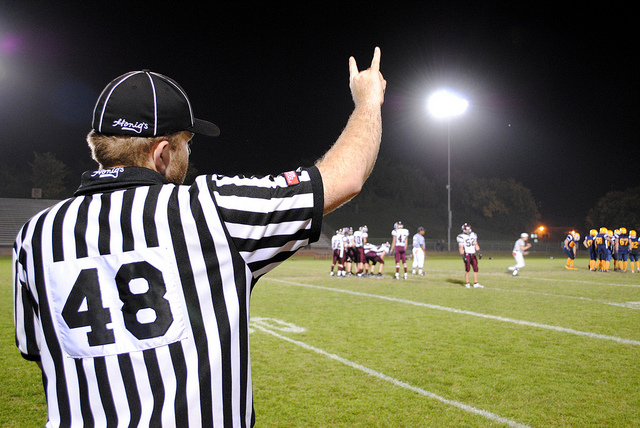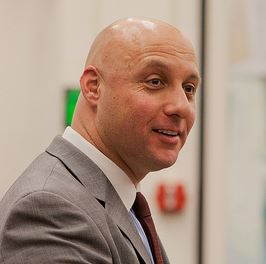In order to label a country “capitalist” there must be complete freedom of association and private property. There is a limited government in place, but the government would be a referee, not a player. It would be outrageous to watch ESPN and hear, “The ref had a great game! He sacked the quarterback twice and intercepted the ball twice.” The referee is not supposed to hit players or catch the football! He calls the game fair and square and enforces the rules of the NFL, even if one team is beating the other by a large margin. That’s it!
True “capitalism” (or “free markets” or “free enterprise”) would mean that employers would be free to discriminate the way employees currently can. For example, if I was hired by a local business and I showed up on my first day of work and found out that my manager is Hispanic or Middle Eastern, and I quit because that bothers me, I cannot be sued by that business owner. You can call me close-minded, ignorant, or prejudiced, but it is not illegal for me to quit my job because I don’t like the ethnicity (or any trait) of my manager or co-workers. However, if I show up my first day of work and my new manager discovers that my ethnicity is Hispanic-Middle Eastern (which it actually is) and he or she fires me solely because of that fact, then I could sue the business. Why does discrimination and freedom of association work one way but not the other? Some businesses can discriminate if the issue in question is considered a bona fide occupational qualification. So, even though I am a Dallas Cowboys fan, you won’t see me next year in my cheerleader uniform on the Cowboys sideline. The team already has enough problems! You also won’t see me delivering your Hooters chicken wings any time soon, which is probably a good thing for your appetite. So, the Dallas Cowboys organization and Hooters can discriminate based on sex, but they couldn’t discriminate based on color or ethnicity. In a true free market economy, they could.
Some might argue that if our laws allowed private businesses to discriminate based on whatever criteria they wanted then we would return to an ugly time in our nation’s past. The error in that comparison is that in the past, it was the government that enforced Jim Crow laws. No true, consistent supporter of capitalism – even a racist, sexist, or any kind of “ist” – would support government-enforced discrimination in the private sector. Business owners would be free to hire whomever they wished based on whatever criteria they wished. Of course, nothing is free, and so there could be a very high cost in repercussion if a close-minded bigot emerged who didn’t want to hire people of a certain color, ethnicity, sex, or sexual orientation. For example, if someone wanted to open up a business in California under a policy of “No Hispanics allowed,” he would suffer bankruptcy.
Religion and discrimination can also intersect. For example, an atheist business owner would not be forced by law to hire a Christian. Some people might say, “Who cares if the guy is a Christian? As long as he can do the job!” A true free market philosophy would allow the atheist business owner the right to be stupid, ignorant, mean, or whatever other word you might want to use. It might reflect poorly on the owner, and it might be morally contemptible, but a job at a private business is not a right nor is it owed to anyone. True capitalism allows for people to act meanly towards one another, however wrong that might be, as long as property rights are respected and owed compensation is not denied.
Everyone believes in freedom of association. I guarantee that all of you who are reading this are glad that you were able to choose your friends, dating partner, or spouse. Everyone has preferences when it comes to looks, height, and weight, and it is not illegal to discriminate in the dating or marriage market. What supporters of true capitalism argue is that this freedom should not be restricted only to our personal lives. Individuals should also have this freedom in their economic lives.



